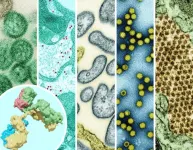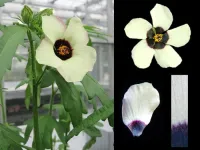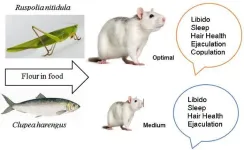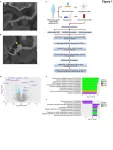(Press-News.org) The National Institutes of Health (NIH) has established a pandemic preparedness research network to conduct research on high-priority pathogens most likely to threaten human health with the goal of developing effective vaccines and monoclonal antibodies. Currently, many of the diseases caused by these pathogens have no available vaccines or therapeutics, and investing in this research is key to preparing for potential public health crises—both in the United States and around the world. NIH’s National Institute of Allergy and Infectious Diseases (NIAID) expects to commit approximately $100 million per year to fund the program, pending the availability of funds.
The Research and Development of Vaccines and Monoclonal Antibodies for Pandemic Preparedness network—called ReVAMPP—will focus its research efforts on “prototype pathogens,” representative pathogens from virus families known to infect humans, and high-priority pathogens that have the potential to cause deadly diseases. By studying specific prototype pathogens, scientists will build a knowledge base that could be applied to other related viruses. For example, NIAID’s earlier work on the Middle East respiratory syndrome coronavirus (MERS-CoV) played a crucial role in understanding and developing safe and effective treatments and vaccines for SARS-CoV-2, the virus that caused the COVID-19 pandemic. The ReVAMPP network will study viruses from virus families that have caused human disease for millennia—many of which have the potential to become pandemic threats in the future.
“In the wake of the COVID-19 pandemic and ongoing outbreaks of emerging infectious diseases, the need for robust pandemic preparedness is evident,” said NIAID Director Jeanne M. Marrazzo, M.D., M.P.H. “The ReVAMPP network will enable researchers to fill key knowledge gaps and identify strategies to develop safe and effective medical countermeasures for targeted virus families before the need becomes critical.”
The ReVAMPP network will focus on viruses from families within:
The Bunyavirales order, which includes Sin Nombre virus from the Hantavirus family, Oropouche virus, and viruses that cause Rift Valley Fever, Crimean Congo Hemorrhagic Fever, and Lassa Fever
The Flaviviridae family, which includes viruses that cause dengue and yellow fever
The Paramyxoviridae family, which includes viruses that cause measles, mumps, and Nipah-induced encephalitis
The Picornaviridae family, which includes viruses that cause poliomyelitis, foot-and-mouth disease, and myocarditis
The Togaviridae family, which includes viruses that induce Chikungunya virus-induced arthralgia or encephalitis and Venezuelan equine encephalitis
By focusing on research to develop vaccine candidates and monoclonal antibodies, the ReVAMPP network will lay the groundwork for a faster and more effective pandemic response should a virus from one of the targeted families emerge as a pandemic threat.
The Research Triangle Institute in Durham, North Carolina, will serve as a centralized Coordination and Data Sharing Center and provide support and coordination for the network. By standardizing experimental design, such as using specific reagents, animal models, and datasets, research centers that comprise the ReVAMPP network will be able to easily share their results and collaborate to enhance the network’s efforts.
The award recipients are:
Albert Einstein College of Medicine, New York City
Project title: PROVIDENT: Prepositioning Optimized Strategies for Vaccines and Immunotherapeutics against Diverse Emerging Infectious Threats
Principal investigator: Kartik Chandran, Ph.D.
Grant: 1 U19 AI181977-01
Research Triangle Institute, Research Triangle Park, North Carolina
Project title: Coordinating and Data Sharing Center - R&D of Vaccines and Antibodies for Pandemic Preparedness (ReVAMPP)
Principal investigator: Gregory D. Sempowski, Ph.D.
Grant: 1 UG3 AI181797-01
University of California, Irvine
Project title: The UCI Vaccines for Pandemic Preparedness Center (VPPC)
Principal investigator: Louis Philip Felgner, Ph.D.
Grant: 1 U19 AI181968-01
University of Texas Medical Branch, Galveston
Project title: Paramyxoviridae and Bunyavirales Vaccines and Antibodies Center (PABVAX)
Principal investigator: Thomas William Geisbert, Ph.D.
Grant: 1 U19 AI181930-01
University of Washington, Seattle
Project title: Machine learning-enabled design of prototype pathogen vaccines and antibodies
Principal investigator: Neil King, Ph.D.
Grant: 1 U19 AI181881-01
Vanderbilt University Medical Center, Nashville, Tennessee
Project title: Bunyavirus and Picornavirus Pandemic Pathogen Preparedness (BP4) Center
Principal investigator: James E. Crowe, Jr., M.D.
Grant: 1 U19 AI181979-01
Washington University, St. Louis
Project title: Flavivirus and Alphavirus ReVAMPP (FLARE)
Principal investigator: Michael S. Diamond, M.D., Ph.D.
Grant: 1 U19 AI181960-01
Washington University, St. Louis
Project title: Vaccines and Therapeutic Antibodies to Respiro, Rubula, Peribunya and Phenuiviridae (R2P2)-ReVAMPP
Principal investigator: Sean P.J. Whelan, Ph.D.
Grant: 1 U19 AI181984-01
NIAID conducts and supports research—at NIH, throughout the United States, and worldwide—to study the causes of infectious and immune-mediated diseases, and to develop better means of preventing, diagnosing and treating these illnesses. News releases, fact sheets and other NIAID-related materials are available on the NIAID website.
About the National Institutes of Health (NIH): NIH, the nation's medical research agency, includes 27 Institutes and Centers and is a component of the U.S. Department of Health and Human Services. NIH is the primary federal agency conducting and supporting basic, clinical, and translational medical research, and is investigating the causes, treatments, and cures for both common and rare diseases. For more information about NIH and its programs, visit https://www.nih.gov/.
NIH...Turning Discovery Into Health®
END
University of Virginia professor Mathews Jacob has secured a $3.9 million grant to advance his innovative research on detecting Alzheimer’s disease in its early stages. Jacob, who specializes in electrical and computer engineering, is teaming up with researchers from the University of Iowa and the University of California-San Francisco to push the boundaries of imaging technology that tracks the brain’s metabolic changes — offering a fresh perspective on studying neurodegenerative disorders.
Their focus is on advancing magnetic resonance spectroscopic imaging (MRSI). Unlike standard MRI, which primarily highlights structural changes, ...
Flowers like hibiscus use an invisible blueprint established very early in petal formation that dictates the size of their bullseyes – a crucial pre-pattern that can significantly impact their ability to attract pollinating bees.
The study, by researchers at the University of Cambridge’s Sainsbury Laboratory also found that bees prefer larger bullseyes over smaller ones and fly 25% faster between artificial flower discs with larger bullseyes – potentially boosting efficiency for both bees and blossoms.
Patterns on the flowers of plants guide insects, like bees, to the centre of the flower, where nectar and pollen await, ...
Men are three times more likely than women to commit traffic violations while driving and to be involved in accidents. Moreover, they are more likely to create situations on the road that are highly dangerous to others. Men are also twice as likely to drive under the influence and nearly one-third more likely to receive a prison sentence for reckless driving. Perhaps it comes down to cultural norms and the different attitudes men and women have toward driving. These are the conclusions reached by Anton Kazun, Assistant Professor at the HSE Faculty of Economic Sciences, and Research Assistant Mikhail Belov.
There is a stereotype that women are worse driver than men; female drivers are ...
Researchers at University of California San Diego have published new guidelines that could help scientists significantly improve their results when quantifying the interactions between DNA and proteins. Understanding these interactions is critical to our understanding of human biology in general, and can also help scientists develop new treatments for a wide range of diseases, including many cancers.
The researchers focused on spike-in normalization, a widely-used molecular biology technique that helps ensure accurate and reliable results. Spike-in normalization involves adding a known quantity of chromatin (DNA and the associated proteins) to a sample before it ...
As the global population grows and traditional livestock production increasingly strains environmental resources, there is a rising interest in alternative protein sources. Edible insects, particularly grasshoppers, are abundant in regions like Cameroon and provide essential nutrients, including proteins, amino acids, and minerals vital for health and growth. Addressing these challenges calls for in-depth studies on the nutritional benefits of insects such as Ruspolia nitidula.
Conducted by the University of Dschang, Cameroon, and published (DOI: 10.26599/FSAP.2024.9240068) in the journal Food Science of ...
A new study sheds light on a promising approach using machine learning to more effectively allocate medical treatments during a pandemic or any time there’s a shortage of therapeutics.
The findings, published today in JAMA Health Forum, found a significant reduction in expected hospitalizations when using machine learning to help distribute medication using the COVID-19 pandemic to test the model. The model proves to reduce hospitalizations relatively by about 27 percent compared to actual and observed care.
“During the pandemic, the healthcare system was at a breaking point and many health care facilities relied on a first-come, first-serve or a patient’s ...
Island breeze, blue lagoon, dew drop—these aren’t the names of scented candles on display at your local home goods store. They’re flavors of synthetic nicotine used in e-cigarettes, often advertised with neon-electric colors and bright lettering to make them look like boxes of candy or fruit juice. But underneath all the flair, a specific label written clearly in black text on a white background is required by law to be there: a warning that says the product contains nicotine and that nicotine is an addictive substance.
Even though health warnings need to be written on physical products sold in stores ...
Mount Sinai researchers have identified a key driver of a blood vessel disorder known as fibromuscular dysplasia (FMD) which affects up to five percent of the adult population and can lead to high blood pressure, heart attack, or stroke.
In a study published September 13 in Nature Cardiovascular Research, the team said changes in the gene UBR4 played an important role as a key driver of FMD. They suggested the discovery could be an important step toward developing a therapeutic approach for the disorder.
“Although fibromuscular dysplasia was first recognized more than 80 years ago, until now ...
About The Study: From 2019 to 2022, overall prescription volumes for stimulant and antidepressant medications increased, while prescription volume for opioids decreased. Concurrently, the proportion of telehealth prescriptions climbed across medications, increasing by a factor of 188 in opioids and more than 20 for antidepressants. These findings align with existing research highlighting the shift toward telehealth and the rise in stimulant and opioid telehealth prescribing during the pandemic. While in-person prescribing remains the most common, increasing telehealth ...
About The Study: In this retrospective cohort study of 3,389 patients with obesity, weight reduction at 1 year was associated with the medication’s active agent, its dosage, treatment indication, persistent medication coverage, and patient sex. Future research should focus on identifying the reasons for discontinuation of medication use and interventions aimed at improving long-term persistent coverage.
Corresponding Author: To contact the corresponding author, Hamlet Gasoyan, PhD, email gasoyah@ccf.org.
To access the embargoed study: Visit our For The Media ...




